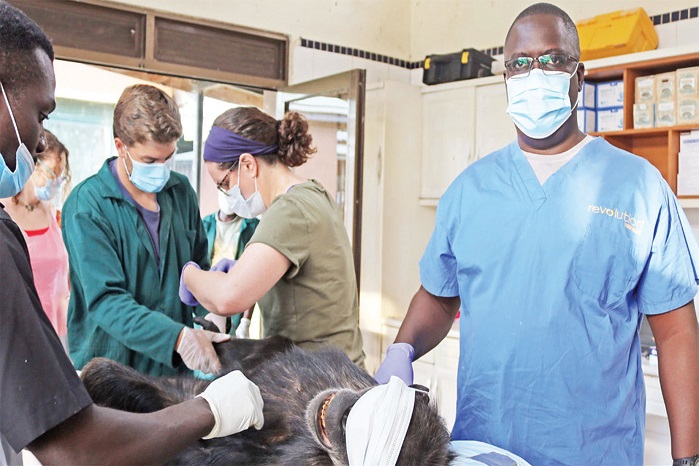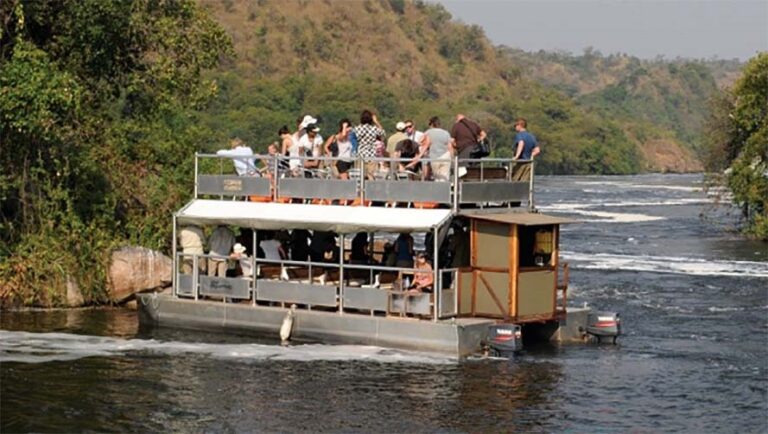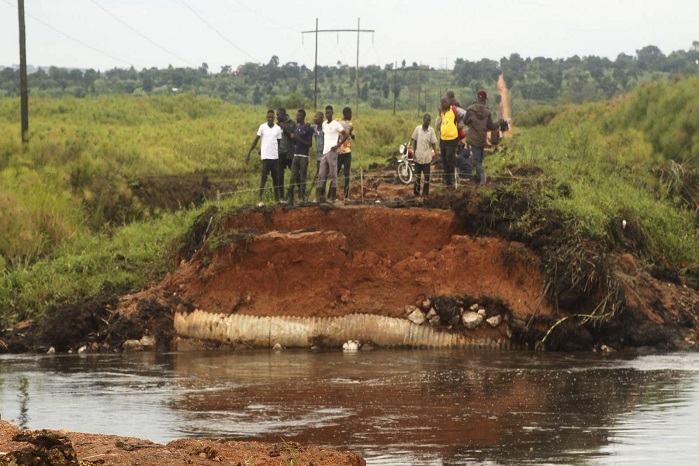
Dr Rukundo (R) overseeing the operation
HABARI DAILY I Kampala, Uganda I Conservationists have come up with a plan that will ensure that the Ngamba Island Chimpanzee population is tamed in order to ensure space for future rescues.
Surrounded by the peaceful waters of Lake Victoria, Ngamba Island Chimpanzee Sanctuary is home to 52 orphaned and rescued chimpanzees. A big number of them were rescued from the illegal pet and bush meat trade.
The managers of this sanctuary have discovered that one of the methods they have adopted is keeping the chimps on contraceptives.
“We have decided to adopt a new surgical implant method for birth control,” said Dr Joshua Rukundo, the executive director of Chimpanzee Sanctuary and Wildlife Conservation Trust
He said the new procedure comes in the wake of failed implants as a family planning method, which has seen eight chimps born, growing the total population to 54 chimpanzees.
Dr Rukundo added that the new innovative approach is expected to be more effective, given the preliminary results.
“We have decided to reinforce the sanctuary’s no-breeding policy and its mission as a safe refuge,” he noted.
Dr Peter Apel from the Jane Goodall Institute explained that the intention of the Government and the conservation agencies is to ensure that chimpanzee populations are protected and maintained in their natural habitat.
Last year, the management of Ngamba Chimpanzee Sanctuary contemplated the use of vasectomy among some of the male chimps as another family planning method.
Dr Rukundo said that they later developed reservations about such a family planning method, because vasectomy among animals remains irreversible. He added that vasectomy is an avenue they will explore at a later stage, because they do not necessarily want to permanently disable these chimps from producing.
“Ideally, we hope that one day we shall be able to integrate them back into the wild,” noted Rukundo.
Therefore, an implant is inserted in every grown female chimpanzee as a birth control method. However, the female chimps have always found a way of removing the implants from their bodies.
“Chimps have a thinner skin than that of humans, making it easy for the implants to be removed while grooming,” Rukundo explained.
Lilly Ajarova, a senior presidential advisor on tourism, explained that the 100-acre island had already exceeded its carrying capacity if the chimps are to be accorded such a semi-natural environment.
She said they would have to find a forest which is ideal for chimps to thrive ecologically.
Ajarova, who was the executive director for Chimpanzee Trust for 14 years, taking charge of chimpanzees on Ngamba Island, said that alternative sanctuary must be empty of other chimps, for them to introduce the ones either at Ngamba or at the Uganda Wildlife Education Center (UWEC).
Uganda is estimated to have a chimpanzee population of around 5,000 individuals. These chimpanzees are primarily of the Eastern chimpanzee subspecies.
Chimpanzees are in two settings. These include In situ (in the wild) and ex situ (outside the wild). In Uganda, there are two ex-situ populations, one on Ngamba Island and at UWEC (Entebbe Zoo), which has 23 chimps.




